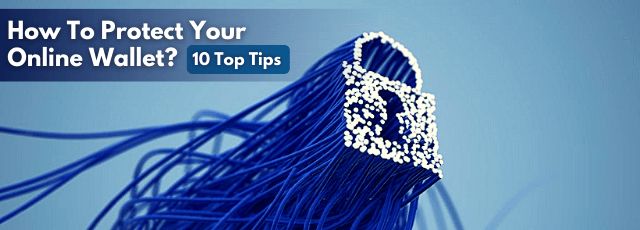Few people can imagine their life without the internet. We go online daily, using our computers and phones to store and access data. Digital transactions let us do our shopping, book travel arrangements, and send money to other users remotely. This convenience comes with a special range of threats. How can you make sure your online wallet is protected from hackers and scammers?
Here are the top 10 ways to stay safe.
1. Use a Password Manager
A high-quality app for password management is a safe and highly recommended tool. It is particularly useful for saving complex credentials for separate accounts, such as the fastest payout online casino NZ and betting sites. Top products like Dashlane use strong encryption to keep all data secret.
Although many users have doubts about the security of password managers, they are actually very reliable. For example, 1Password uses the Watchtower technology that informs you of any reused, compromised, or vulnerable passwords. Check professional reviews and feedback from users to find the best product for your needs.
You could also write the passwords on paper. Keep the notes in a hidden spot that you will never forget. Some users prefer to keep hard copies of bank statements and receipts, too, so they can refer to them if something goes wrong.
2. Steer Clear of Suspicious Links
Everybody knows that clicking on unfamiliar links is dangerous. Cybercriminals are resourceful, so they are always coming up with new ways to hack devices. You may get emails claiming that your account has been hacked, or see random pops-ups all over the screen. Never click on something that looks suspicious. Purchase products from reputable sites and check user feedback first.
3. Check Apps Before Downloading
Do not download applications from non-official sources. A program that looks like a fun game may turn out to serve a sinister purpose. Fortunately, the average user needs to perform some actions to have their devices infected. The undetectable Pegasus spyware that infiltrates mobile devices costs hundreds of thousands of dollars to use, and it is designed only for governments.
4. Use an Offline Storage
Keep your digital wallet in an offline location like an encrypted flash drive. This is particularly important for large amounts of money. If you store the drive in a safety deposit box, nobody can use it without permission. Those familiar with cryptocurrency trading know that a cold (offline) wallet, which stores your address and private key, is the safest way to store the coins.
5. Protect Your Devices
In addition to protecting each account with a password, make sure your devices are protected, too. Set a password or security code for every computer, tablet, and phone. Enable biometric authentication if your smartphone has a fingerprint sensor. Every password must include upper case, and lowercase letters, digits, and special symbols. If you struggle to come up with a strong combination, try online generators.
6. Activate Two-factor Authentication
Set an additional barrier for excess. This doubled form of defense is one of the best ways to protect your accounts. Commonly, access requires a special code that may be sent to your email address or phone number. You must then enter it on the site you want to access. If someone tries to hack into your account, you will be notified immediately.
7. Install Anti-Virus Software and Apps
Install reliable anti-virus software on all of your devices, both desktop and mobile. It will notify you of any security breaches and block harmful websites. The most reliable programs are not free, but they are worth every cent. Update this software regularly, so it can recognize new threats.
8. Follow the News
The internet is changing at breakneck speed. As companies are developing new security measures, hackers are devising ways to circumvent them and steal personal data. New methods of unauthorized access are appearing all the time. Stay informed about the latest trends and news in the cyber security industry.
9. Use Secure Networks
Using free Wi-Fi in a cafe or airport may be tempting. However, it is also potentially dangerous, as imposter networks are a gateway for hackers. Use only password-protected secure networks and pay attention to the names. Sometimes, cybercriminals create hotspots whose names are similar to the official networks in the area.
10. Keep an Eye on Your Accounts
Check your accounts regularly, just as you do when using debit cards or checks. Review them at least weekly to stay on top of any changes. Report any suspicious activity immediately and contact the right authorities.
Stay Vigilant
Despite their convenience, electronic wallets have their vulnerabilities. Monitor your accounts, protect your data and devices, and never provide your passwords to anybody else. Our recommended precautions will help you keep your money safe.
